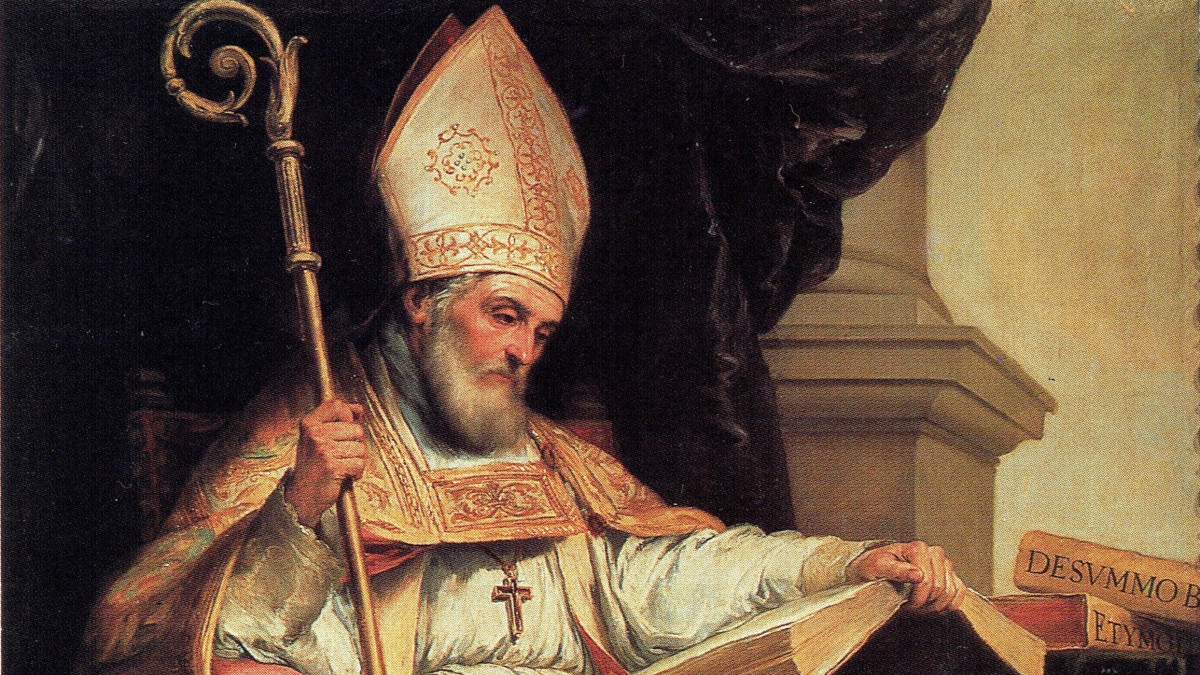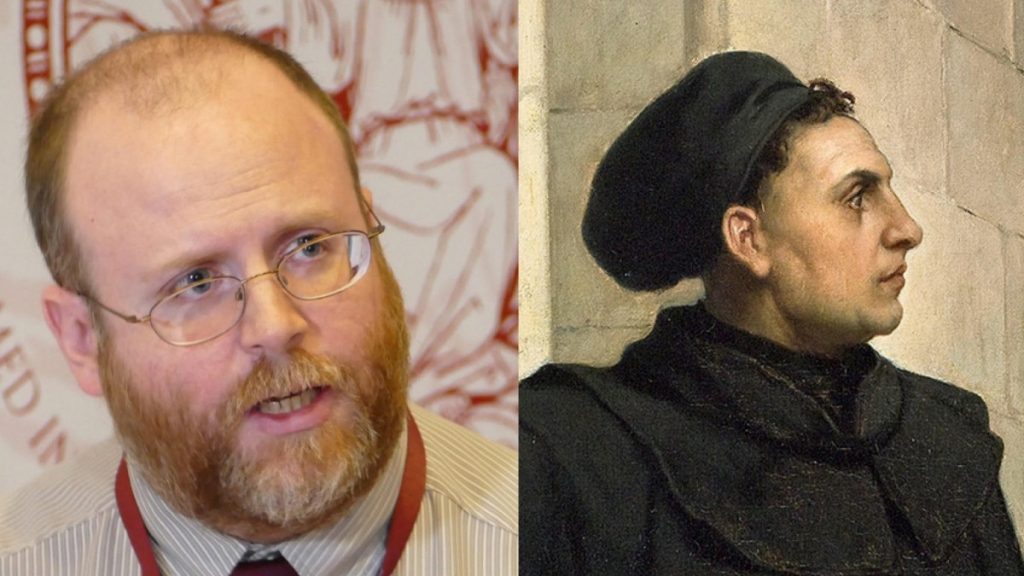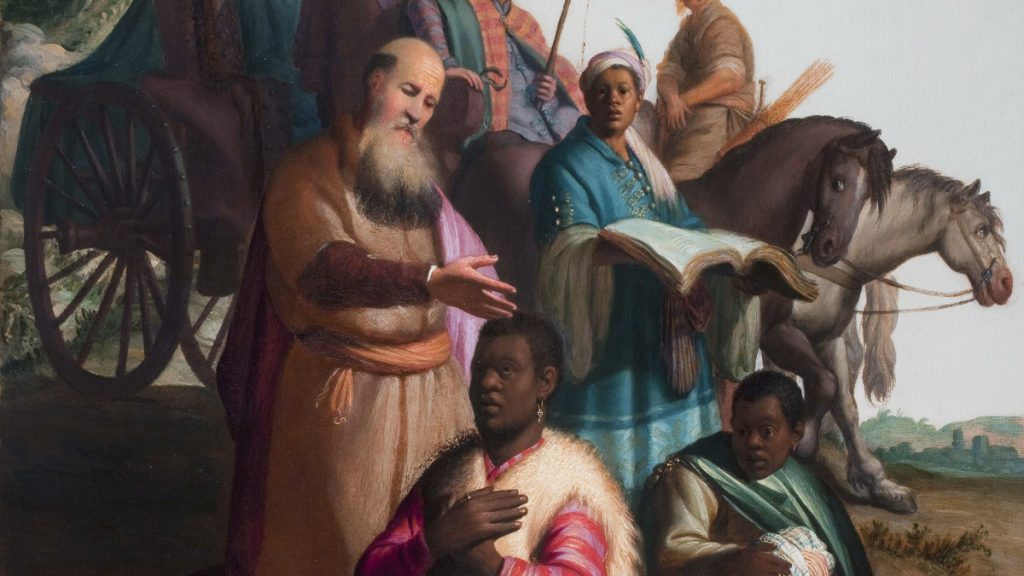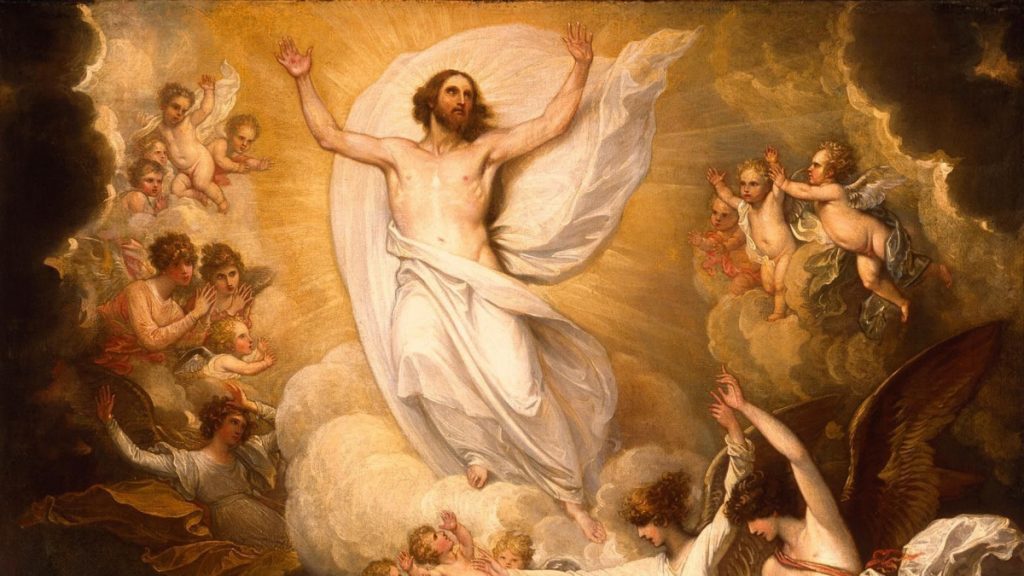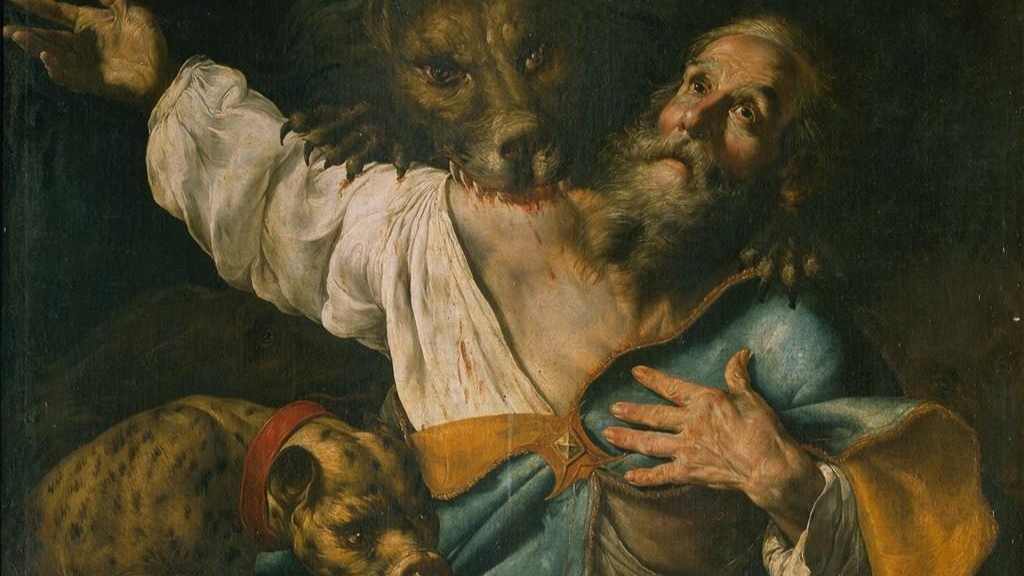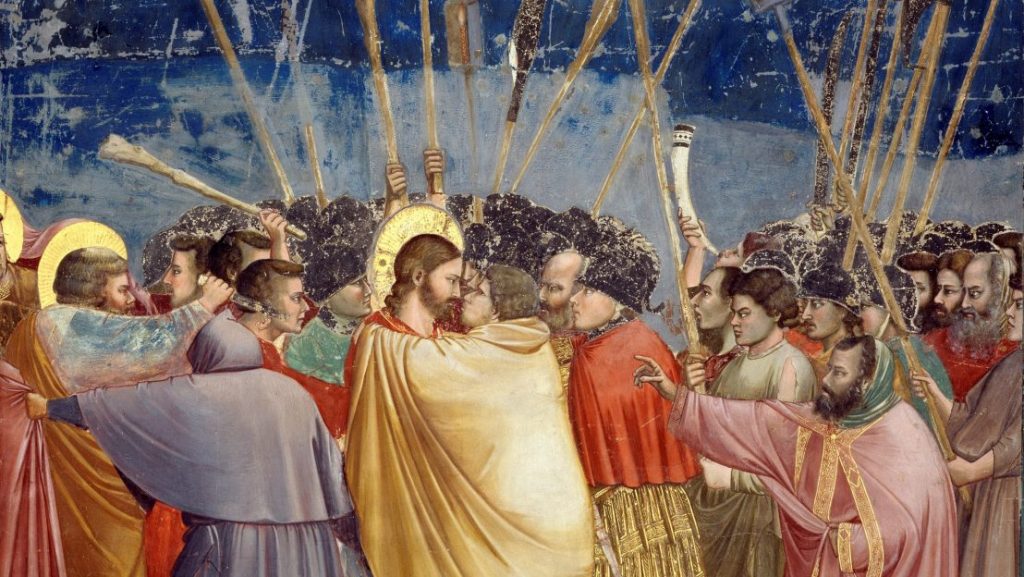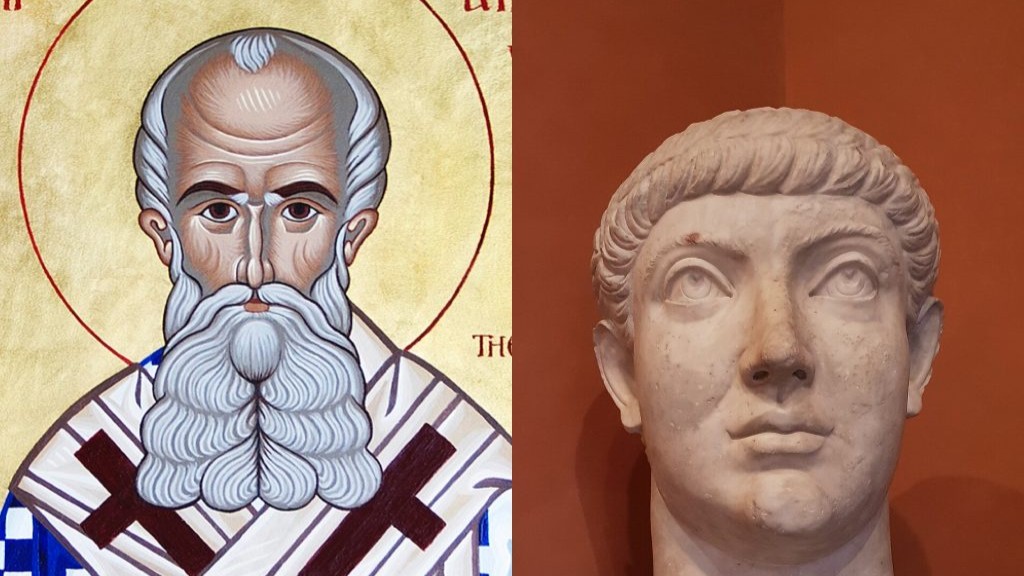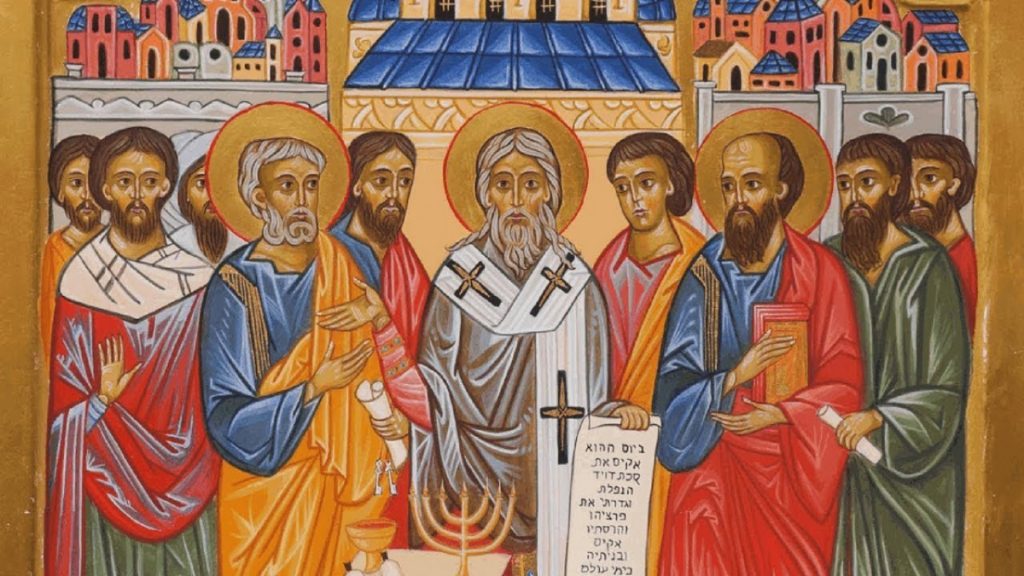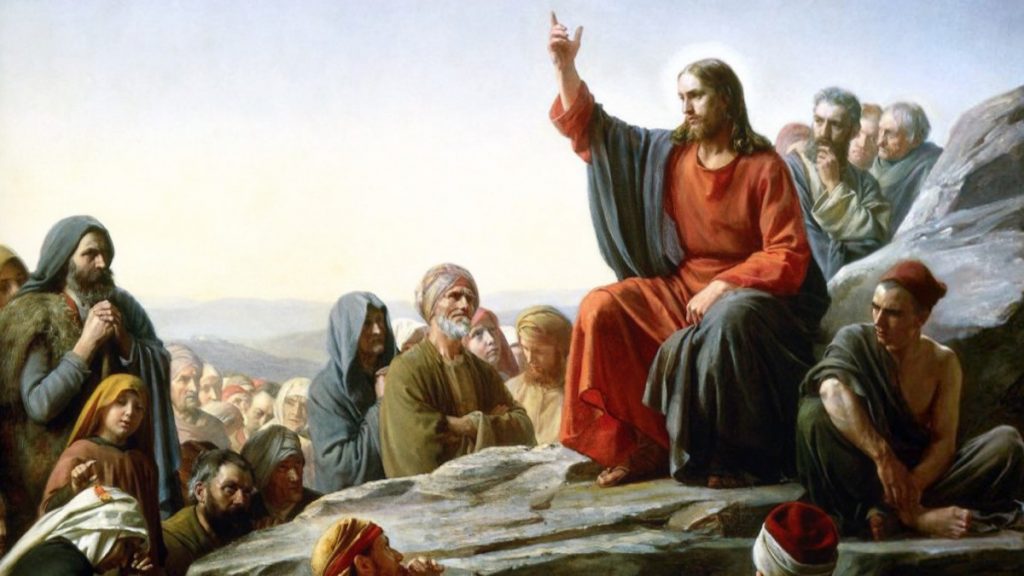(Updated July 17, 2025)
This Author Quote Archive collects pertinent quotes from the Church Father, St. Isidore of Seville.
Next to each quote are the Topic Quote Archives in which they are included.
This Quote Archive is being continuously updated as research continues. Quotes marked with “***” have not yet been organized into their respective Topic Quote Archives.
Books
St. Isidore of Seville, The Etymologies (c. 636)
- The Heretical and Schismatic Spirit | Book 8, Ch. 1, §§1-4; Ch. 3, §§1-5; Ch. 5, §§1, 69-70; Ch. 6, §22
(Book 8, Ch. 1, §§1-4)1
(§1) ‘Church’ (ecclesia) is a Greek word that is translated into Latin as “convocation” (convocatio), because it calls (vocare) everyone to itself. ‘Catholic’ (catholicus) is translated as “universal” (universalis), after the term καϑὅλον, that is ‘with respect to the whole,’ for it is not restricted to some part of a territory, like the small associations of heretics, but is spread widely throughout the entire world.
(§2) And the apostle Paul assents to this when he says to the Romans (1:8): “I give thanks to my God for all of you, because your faith is spoken of in the whole world.” Hence the Church is given the name ‘the universal entity’ (universitas) from ‘one’ (unus), because it is gathered into unity (unitas). When the Lord says, in the Gospel according to Luke (11:23): “He that gathereth not with me, scatters.”
(§3) But why is the Church described by John as seven [Apoc. 1:4], when it is one, unless a single and universal church, filled with a sevenfold Spirit, is meant? We know Solomon spoke of the Lord like this (Prov. 9:1): “Wisdom hath built herself a house, she hath hewn her out seven pillars.” There is no doubt that wisdom, although it is seven, is also one, as the Apostle says (1 Tim. 3:15): “the church of the living God, which is the pillar and ground of truth.”
(§4) And the Church began from the place where the Holy Spirit came from heaven, and filled those who were sitting in one (unus) place [Acts 2:1-4].
(Book 8, Ch. 3, §§1-5)2
(§1) Heresy (haeresis) is so called in Greek from ‘choice’ (election, cf. αίρεῖν “choose”), doubtless because each person chooses (eligere) for himself that which seems best to him, as did the Peripatetic, Academic, Epicurean, and Stoic philosophers—or just as others who, devising perverse teachings, have withdrawn from the Church by their own will.
(§2) Hence, therefore, ‘heresy,’ named with a Greek word, takes it meaning from ‘choice,’ by which each person, according to his own judgment, chooses for himself whatever he pleases to institute and adopt. But we are permitted to introduce nothing based on our own judgment, nor to choose what someone else has introduced from his own judgment.
(§3) We have the apostles of God as authorities, who did not choose anything themselves to introduce from their own judgment, but faithfully bestowed on the world the teaching received from Christ. And if even an angel from heaven preaches otherwise, he will be termed anathema.
(§4) A sect (secta) is named from ‘following’ (sequi, ppl. Sectus) and ‘holding’ (tenere), for we use the term ‘sects’ of attitudes of mind and institutions associated with a precept or premise which people hold and follow when in the practice of religion they believe things that are quite different from what others believe.
(§5) Schism (schisma) is so called from the division (scissura) of opinions, for schismatics believe with the same worship, the same rite, as the rest; they delight in mere dissension (discidium) in the congregation. A schism occurs when people say “we are the righteous ones,” “we are the ones who sanctify the unclean,” and other similar things.
(Book 8, Ch. 5, §§1, 69-70)3
(§1) Some heretics, who have withdrawn from the Church, are named from the name of their founder, and some from the positions that they have selected and established [lists 68 heresies]… 175 | 178
(§69) There are also other names heresies without a founder and without…
(§70) These are heresies that have arisen in opposition to the catholic faith, and have been condemned by the apostles and Holy Fathers, or by the Councils. These heresies, although they disagree with each other, differing among themselves in many errors, nevertheless conspire with a common name against the Church of God. But also, whoever understands the Holy Scriptures otherwise than the meaning of the Holy Spirit, by whom they were written, requires, even if he does not depart from the Church, nevertheless can be called a heretic.
(Book 8, Ch. 6, §22)4
These errors of the philosophers also introduced heresies within the Church…[Cites the heresies of Arius, Valentinians, and Marcion, and points out that they and others were produced by platonic, stoic, epicurean, and Zeno-derived philosophical errors]…The same material is rolled among the heretics and the philosophers, and the same repeated statements are involved.
St. Isidore of Seville, Sententiae (c. 612)
- Development of Doctrine | Book 1, Ch. 16, §§5, 8
- The Heretical and Schismatic Spirit | Book 1, Ch. 16, §§1-18; Ch. 18, §8; Ch. 23, §1 | Book 3, Ch. 12, §1-7; Ch. 27, §3
(Book 1, Ch. 12, §5)5
Heathens and heretics attempt to dispute about the soul, but how are they able to think correctly about it if they have not known the author in whose image it has been made? Therefore they have said many things worthy of error.
(Book 1, Ch. 16, §§1-18)6
(§1) The beauty of the Church is twofold: the first follows from the fact that it is living well here and the second from the fact that it will be glorified in the next world as its reward.
(§2) Two tribulations exist for the Church on account of Christ: they are those it suffered from the pagans in its martyrs, and those it endures from heretics in various disputes. However, it overcomes both of these through the grace of God, in part by bearing them, in part by resisting.
(§3) Just as the holy, Catholic Church patiently tolerates those in her who live in an evil manner, just so she repels from herself those who believe in an evil manner.
(§4) The holy Church strives for wisdom and patience with the greatest diligence against the stubbornness of the heathens and heretics; wisdom is exercised when it is put to the test by words, patience is exercised when it is put to the test by swords. [For sometimes it is attacked by persecutions, at other times it is provoked by false assertions].
(§5) Because of the wickedness of heresy, the Church has expanded the scope of its doctrines, for earlier it was flourishing only by a simple faith. Therefore because of the opportunity offered by the heretics, those learned in the faith have increased [1 Cor. 11:19], and through the acumen of the heresies, the teachers of the Church have grown in depth. For now the assertion of the truth is manifested more clearly whenever any dissension appears.
(§6a) The holy Church is called Catholic, therefore, because of the fact that it is spread everywhere throughout the whole world. Whereas the churches of the heretics are restricted to certain parts of the world, the holy Church, diffused throughout the whole world, is being spread, as Paul the Apostle testifies: “I thank my God…for all of you, because your faith is proclaimed throughout the world” (Rom. 1:8).
(§6b) Heresies are found to have turned up either in some corner of the world, or in one particular people. On the other hand, the Catholic Church is being extended through the whole world and thus is being built up in the community of all peoples.
(§7) Who are the heretics, if not those who having abandoned the Church of God have chosen private associations? About these the Lord says, “My people have committed two evils: they have forsaken 64 | 65 me, the fountain of living water, and dug out cisterns for themselves, cracked cisterns that can hold no water” (Jer. 2:13).
(§8) The reason for heresy is that this reality might come to be, that is, the strengthening of faith [1 Cor. 11:19]. The power of faith is shown, for example, through that which may be an obscurity of the divine Scriptures, in which the mistaken heretics understand something other than that which it really contains; the heresies are not able to survive, because by the very fact that they are heresies, they already are not. By thinking wrongly, they do not acquire the essence; they tend toward nothingness.
(§9) Heretics learn their falsehoods with great zeal, and these falsehoods are contended with furious effort, lest they come to the unity of the Church. About them it is rightly said through the prophet, “They have taught their tongues to speak lies; they commit iniquity and are too weary to repent” (Jer. 9:5).
(§10a) The heretics mutually lacerate each other by turns, when they lead one another into their own proper sects; nevertheless, each of them bands together with each other, so that they might contend against the Church by the same spirit of error, and those who are divided among themselves are united at the same time in opposition to the Church.
(§10b) To those people for whom only the heresies appear to have the truth, because they have so much strength, it must thus be responded: must diseases now therefore be preferred to health, since in general they occupy the greater portion of the world, so that these diseases leave a smaller place for health?
(§11) It is not possible for heretics to have pardon, except through the Catholic Church, just as the friends of Job were not able to make atonement to God by themselves, if Job had not offered sacrifice for them [Job 42:8].
(§12) The good works that the heretics do and their moral integrity count for nothing as the Lord testifies through [Isaiah]: “[Because you] did not remember me…I will concede your righteousness and your works, but they will not help you” (Isa. 57:11-12).
(§13) Even if the heretics fulfill the law and the prophets, nevertheless by the fact that they are not Catholic, God is not in their assemblies, as the Lord himself testifies: “Though Moses and Samuel stood before me, yet my heart would not turn toward this people. 65 | 66 Send them out of my sight, and let them go!” (Jer. 15:1). Through the references to Moses and Samuel you should understand the law and the prophets, and even if the heretics strive to fulfill them by their deeds, on account of the impiety of their error, they are cast away nevertheless from the face of God and they are separated from the assemblies of the just.
(§14) The pagan and the heretics: because the first one has never been with the people of God, and because the second has forsaken the people of God, both of them, going away from Christ, belong to the body of the devil.
(§15) Those who by idolatry move toward Judaism or heresy, according to the prophet “proceed from evil to evil, and they do not know me, says the Lord” (Jer. 9:3), because by the error of infidelity they move on to another error.
(§16) Whoever follows their teaching is called a child of theirs; just as through the prophet [Ezek. 16:3] the Lord says that the father of the Israelite is an Amorite and his mother is a Hittite, not certainly by birth but by imitating, so also those who keep the precepts of God are, in a much better way, called sons of God. Thus even we call out to God, not by nature but by adoption, saying, “Our father in heaven” (Matt. 6:9).
(§17) Not only simply by birth, but also by imitation is it possible to be called children of someone [Gal. 4:23]; for the Jews are called children of Abraham according to the flesh and children of the devil according to their conduct [1 John 3:8-10]. And, likewise, there are those who are of the seed of Abraham because they are imitators of his faith, though they were not born of his flesh.
(§18) From the author of the error, both the name and the blame are carried to those who follow them, so that by the name of this person, his error and whoever follows it is censured, as it is aid of the Church in Pergamum in Revelation: “You have some there who hold to the teaching of Balaam” (Apoc. 2:14) and Jezebel [Apoc. 2:20]. Thus the church of [Pergamum] is said to hold the teaching of Balaam by imitation and not on account of his bodily presence.
(Book 1, Ch. 18, §8)7
And further, prophecy mixes in present things with deeds accomplished in the future, so that these future things will be believed to the extent that they are discerned to be already complete. Thus in this manner it is spoken about future things through present things, as in the person of Jerusalem concerning the Church, and also in the person of Ephraim concerning the heretics.
(Book 1, Ch. 23, §1)8
That only the Catholic Church has baptism for salvation is stated by Zechariah the prophet: “On that day a fountain shall be opened for the house of David and the inhabitants of Jerusalem, to cleanse them from sin and impurity” (Zech. 13:1). Clearly the house of David and Jerusalem is the Church of Christ, in which there endures the fountain for the cleansing of sins. Heretics, however, perform it only by imaginary show, and therefore baptism is given to them not for the remission of sins, but as an indication of punishment.
(Book 3, Ch. 12, §1-7)9
(§1-2) A person never understands the law who runs through the words of the law in a sensual manner, but only the one who perceives it with a sense of interior understanding. Those who are attentive to the letter of the law are not able to penetrate its hidden meanings [2 Cor. 3:6]. There are many, not understanding the Scriptures in a spiritual manner and not perceiving them correctly, who have been thrown into heresy and have descended into many errors.
(§3) The law has been entrusted to the faithful alone, as the Lord testifies through the Prophet: “Bind up the testimony, seal the teaching among my disciples” (Isa. 8:16), so that neither a Jew nor a heretic may understand it, because he is not a disciple of Christ; they do not pursue the unity of peace that Christ has taught, about which the Lord himself says, “By this everyone will know that you are my disciples, if you have love for one another” (John 13:35).
(§4) Heretics do not understand the Scriptures in a wholesome sense, but they lead them I not the error of a wicked understanding; nor do they subject themselves to their meanings, but they force them perversely into their own proper error. 163 | 164
(§5) Teachers of errors so entangle their hearers by perverse persuasions through fraudulent arguments that they entwine them as if in a labyrinth from which they are barely able to escape.
(§6) So great is the cunning of the heretics that they mix together falsehoods with the truth and bad things with the good; they frequently sow the poison of their error among salutary things, by which they are able more easily to present in a persuasive manner the depravity of false teaching under the appearance of truth.
(§7) Often heretics write their own doctrines under the name of Catholic teachers so that their presentations may be believed without doubt. Sometimes they even insert their own blasphemies in our books by a hidden deceit, and they corrupt the true teaching by adulterating it, either by adding things that are evil or taking away things that are holy.
(Book 3, Ch. 27, §3)10
Just as our mother the Church is viciously attacked by those who are heretics, but nevertheless comes to them and embraces them with a merciful love, so also should each one of us support those who are our enemies and, turning toward them, immediately embrace them in imitation of our mother.
St. Isidore of Seville, Chronicon (c. 615-630s)
- Pagan Attempt to Rebuild the Jerusalem Temple Thwarted | Sixth Age of the World, §101
(Sixth Age of the World, §101)
Julian [the Apostate] ruled for two years. He went from being a cleric to being an emperor and a pagan. He was converted to the cult of the idols and instituted martyrdom for the Christians. He forbade Christians to teach or learn the liberal arts.
At that time he also, out of his hatred for Christ, permitted the Jews to repair the Temple of Jerusalem. Jews gathered from all the provinces and laid new foundations for the Temple. Suddenly at night an earthquake struck and the stones from the deepest parts of the foundation were shaken and scattered far and wide. In addition a fiery ball came out from the interior of the building of the Temple and prostrated many with its fire. Those remaining were frightened by this terror and involuntarily confessed Christ. And lest they thought it was over with this destruction, the sign of the cross appeared the following night on everyone’s clothing. Julian, proceeding against the Persians, died, having been hit with a javelin as the attack was being launched.
Footnotes
- St. Isidore of Seville, Stephen A. Barney, et al, trans., The Etymologies of Isidore of Seville (Cambridge: Cambridge University Press, 2011), 173. ↩︎
- St. Isidore of Seville, Stephen A. Barney, et al, trans., The Etymologies of Isidore of Seville (Cambridge: Cambridge University Press, 2011), 174. ↩︎
- St. Isidore of Seville, Stephen A. Barney, et al, trans., The Etymologies of Isidore of Seville (Cambridge: Cambridge University Press, 2011), 175, 178. ↩︎
- St. Isidore of Seville, Stephen A. Barney, et al, trans., The Etymologies of Isidore of Seville (Cambridge: Cambridge University Press, 2011), 180. ↩︎
- St. Isidore of Seville, Thomas L. Knoebel, trans., Ancient Christian Writers, Vol. 73: Isidore of Seville—Sententiae (New York: The Newman Press, 2018), 56. ↩︎
- St. Isidore of Seville, Thomas L. Knoebel, trans., Ancient Christian Writers, Vol. 73: Isidore of Seville—Sententiae (New York: The Newman Press, 2018), 64-66. ↩︎
- St. Isidore of Seville, Thomas L. Knoebel, trans., Ancient Christian Writers, Vol. 73: Isidore of Seville—Sententiae (New York: The Newman Press, 2018), 69. ↩︎
- St. Isidore of Seville, Thomas L. Knoebel, trans., Ancient Christian Writers, Vol. 73: Isidore of Seville—Sententiae (New York: The Newman Press, 2018), 74. ↩︎
- St. Isidore of Seville, Thomas L. Knoebel, trans., Ancient Christian Writers, Vol. 73: Isidore of Seville—Sententiae (New York: The Newman Press, 2018), 163-64. ↩︎
- St. Isidore of Seville, Thomas L. Knoebel, trans., Ancient Christian Writers, Vol. 73: Isidore of Seville—Sententiae (New York: The Newman Press, 2018), 180. ↩︎
